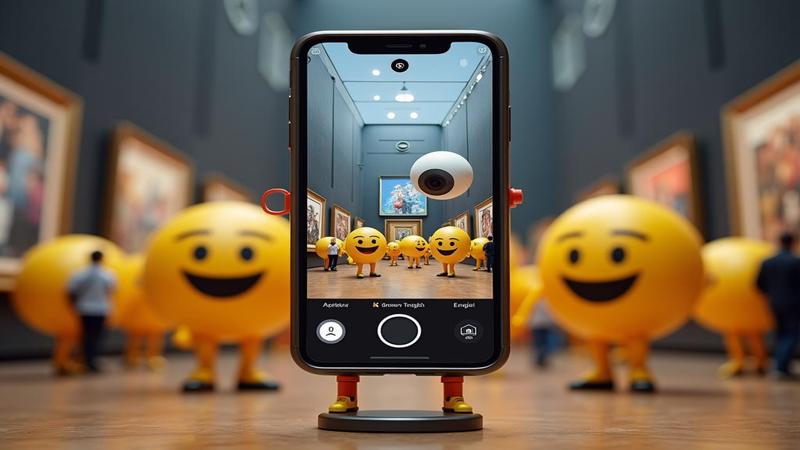Meta Allegedly Scans Your Camera Roll, Then Sells the Highlights to Ads

In a development that reads like a rumor brewed in a basement full of blue-light monitors, Meta might be secretly scanning your phone’s camera roll. The allegation has more drama than a reality show reunion and less context than a weather forecast. If true, your selfies could become prime ad inventory before you even pick a filter.
Meta insists the matter is about improving experiences and ad relevance, though the justification reads like a TED Talk on acronyms. A spokesperson described the feature as a ‘privacy-preserving optimization’—which sounds impressively vague and legally bulletproof.
Users reacted with a blend of curiosity and panic, which is the exact demographic Meta tends to court. Some shrugged and grabbed popcorn, perhaps hoping this would finally explain those uncanny photo captions.
Tech reporters have been chasing ‘how to check’ and ‘how to turn off’ guides as if hunting Easter eggs. The internet is now a scavenger hunt for permission toggles and polite refusals.
Some articles say the feature runs in the background, quietly indexing photos while you watch cat videos. The process supposedly collects metadata, timestamps, and vibes, which is exactly what you hoped your screenshots would reveal.
Even the most optimistic privacy advocates admit the whole thing sounds messy, like a courtroom drama starring your photo gallery. The only jury in session is your own suspicion that something’s watching you in the cloud.
To the average user, the real question isn’t ‘does it scan?’ but ‘how do I stop it without turning my phone into a brick?’ The answer appears to be a series of increasingly arcane menu dives.
To calm nerves, the first move is to dive into Settings, then pretend you understand what ‘camera access’ really means, and consider installing a ‘privacy vault app’ that promises to guard selfies from curious algorithms.
Second, search the settings for ‘Data scanning’ or ‘Camera roll permissions’ and toggle off anything that looks like it’s enabling automatic indexing. If the toggle is greyed out, you may be asked to accept ‘necessary permissions’ that the universe forgot to grant you.
Third, reboot your device to test persistence, because tech features love to pretend they remember you. If after reboot your camera roll still whispers your secrets to the ether, it’s time to call a professional exorcist or a very patient intern.

Fourth, check which apps request permission again, and pretend you didn’t scream at the notification. The process is designed to feel like whack-a-mrompt; every time you blink, something new asks for access.
Experts suggest you can add another layer with a ‘offline photo organiser’ to manage your gallery locally, which sounds like a fancy way to pretend you own your memes. This approach keeps the content off servers, until someone mentions cloud backups with a suspicious wink.
Meanwhile, advertisers are sharpening pencils, hoping to monetize the melancholy of privacy anxiety. If fear is a feature, then the camera roll is basically a loyalty program you never signed up for.
Meta’s stock price dances around the headline like a nervous dancer at a software launch party. The rumor, whether true or not, is now the kind of thing that makes investors whisper into their coffee.
Other platforms are watching closely, because nothing says ‘we respect your consent’ like a multi-billion dollar race to reassure users with a one-click toggle.
Satirical analysts suggest the camera roll could become the new like button, a gallery of faces that feed a thousand ad jingles. If that happens, your memories will come with embedded advertisements and a polite ‘sorry, we’re watching’.
People are turning privacy into memes, treating data governance as a fashion trend with memes about consent badges and permission slips.
Practical advice for readers: disable all conditional on-device scanning, review every permission, and consider turning on airplane mode during personal moments.
Ultimately, this is a reminder that privacy is a moving target, and your phone is a speed-running obstacle course where every upgrade changes the course.
Final thought: if Meta can scan your camera roll, maybe the only safe search is ‘where’s my data?’ and ‘store it offline’—preferably on a device that never leaves your pocket.
